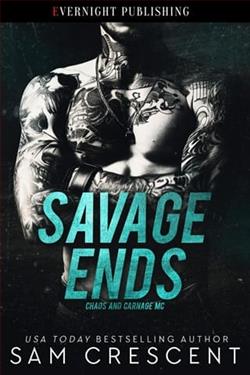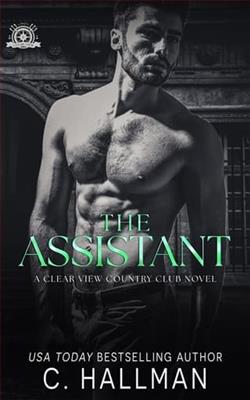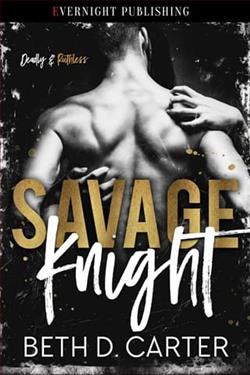Page 113 of Weekends with the Sunshine Gardening Society
‘What?’ Shirl squawks. ‘Barb!Barb!’
‘Mm?’ Barb lifts her head from her stooped position.
‘Liz is going to sell the house.’ Shirl whips her head back and narrows her eyes further.
‘I’m only thinking about it!’ Elizabeth protests, because it’s technically true.
‘Nah.’ Shirl presses her lips together. ‘You’ve decided.’ She looks crestfallen. ‘I was hoping to see another spring in that garden.’
She sighs and Elizabeth feels terrible. She really hadn’t considered that some of the others might put up resistance to her selling.
‘Still,’ Shirl says, her tone matter-of-fact, ‘it’s a house. And a garden. Not an arm or a leg. You have to take arms and legs with you, right? Houses and gardens can be left. Besides …’ She glances towards Barb. ‘Maybe we can ask whoever buys it if they mind us doing a bit of work. Just so we can keep an eye on the place.’
‘I’m sure they won’t,’ Elizabeth says, relieved that the resolution appears to be so neat.
‘We won’t make you come along.’ Shirl pats her on the shoulder. ‘You need to fly free.’
Elizabeth starts, wondering if Shirl knows about her dream. Except she couldn’t. Could she?
‘Come on, then,’ Shirl says. ‘Weeds are going to waste.’
Lorraine waggles her gloved fingers at Elizabeth, who nods and crouches down next to her, a feeling of bittersweet relief washing over her.
CHAPTER SIXTY
Asmuch as Cynthia has resisted the word ‘grandmother’ she has embraced grandmotherhood. After she turned forty Odette teased her that maybe, finally, she could be called Granny, but Cynthia’s response was to say that the issue is moot until Jordan learns to talk, and she’ll make up her mind then.
Not that she has alternatives in mind. Her maternal grandmother had been Nana and Wilfred’s mother was Grand-mère. She wasn’t French but she wished she was, so she tried to arrange her world accordingly – a somewhat confusing state of affairs for Cynthia and her brother given she often spoke to them in French, a language they didn’t understand.
Pat, on the other hand, loves being referred to as Pa, talking to Jordan in a baby voice and telling him ‘Pa loves you’. Which is sweet, Cynthia has to admit, but given she and Pat are the same age she wishes he would reconsider.
This afternoon, Pat is sitting on a rug in Wilfred’s garden, dangling a small toy over the baby, provoking giggles. It’s a scene that makes Cynthia pleased and resentful all at once as she observes it from her own spot on the lawn.
‘I don’t remember you being this interested in Odette when she was a baby,’ she says. He really only became engaged once Odette could walk.
She’s held in this particular observation for a while but she’s growing tired of being polite about it, probably because Odette keeps going on about how ‘great’ Pat is with the baby and how he’s such a ‘cool grandpa’. When Pat’s eyes meet hers, though, she can see that her arrow has found its mark and she feels slightly ashamed. The past could have been left in the past. Couldn’t it?
‘Yeah,’ he says. ‘I was more interested in waves when she was tiny.’ He looks away then back to her. ‘I’m sorry.’
It’s the apology she’s waited years for but it doesn’t feel like a victory. Instead she feels sad that Odette missed out on the affection her father is showing her son. And, since he’s opened the door to it, she also feels like making a point.
‘You made it hard for me,’ she says. ‘You were always off at dawn, right when she was waking up. Gone for hours.’
‘I was young,’ he says, as if that’s the get-out-of-jail-free card.
‘And what was I?’ she snaps.
His mouth opens slightly and she can see, with awful clarity, that he has not once stopped to consider this. Even though she left him. No doubt he thought her leaving was just something that happened to him rather than taking any time to examine his role in it. No time like the present, then.
‘You were her mother,’ he says softly. ‘I didn’t …’
‘You didn’t think I needed to exist outside of that.’ Cynthia clenches her jaw. ‘Except for whenyouwanted things from me.’
She remembers being so tired from waking up during the night to feed Odette, and spending the days cleaning, washing, cooking, then he’d want her to be his lover and never understood how she simply didn’t have the energy. Once she tried to explain that if he just helped her more she’d have more enthusiasm for him, but he’d looked at her as if she’d asked him to pole vault to the moon. It was hard – too hard, in the end – to sustain interest in him when he didn’t seem to have any in her. He adored Odette, but mainly he wanted to be what he was, which was a young man, and didn’t much care – or didn’t seem to – that she was ayoung woman and wanted to be that too. Odette was a child they both wanted but only one of them took responsibility for her.
‘Yes,’ Pat says, and she’s been so lost in her anger at the him of twenty years ago that she’s not sure if he’s really speaking to her now. ‘I wasn’t fair on you,’ he goes on. ‘On us. I was …’ He sighs heavily. ‘Selfish.’
‘Quelle surprise,’ she says drily, and it’s as if Grand-mère has resurrected herself. It’s not the first time Cynthia has heard phrases her mother or grandmothers used to say pop out of her mouth; Jordan’s arrival has opened some kind of vortex to the past that is both unsettling and reassuring.















